About Ithaca forest preschool
Welcome to Our Wooded World!
With some curiosity, exploration and guidance the seeds of connection can grow, rooting us to our natural surroundings and forming kinship with the Earth. The social-emotional skills that children learn here are among the most important skills they need for school and for life. Our curriculum prepares children for kindergarten and beyond!
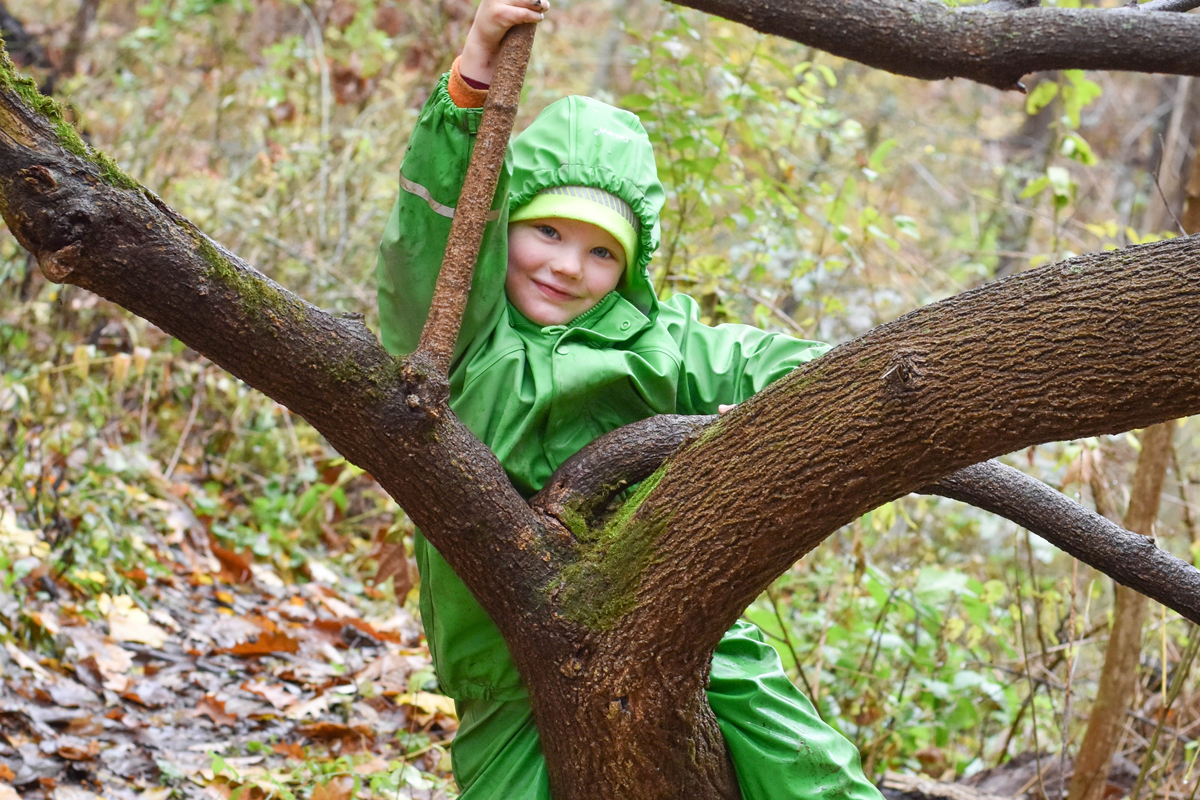
Program Hours
Monday through Friday, 9am-12pm.
Ithaca Forest Preschool is a community of learners. The group bonds through shared challenges and experiences, and from getting to know each other for a whole school year or more. At this age, consistency is important. For these reasons, five days for a full year is our standard and most discounted, option. If you are hesitant to enroll for this option, please feel free to contact us to discuss it.
If five days a week for the full school year isn’t right for your family, we offer two

Program Location
4-H Acres 418 Lower Creek Road, Ithaca, 14850
Enrollment Requirements
- Children are eligible to enroll if they will be 3 by September 1st and will not reach the age of 6 before January 1st.
- Children must be out of diapers and needing only minimal assistance with toileting.
- Because we learn in an outdoor classroom without walls, children must be able to stay with the group and follow instructions most of the time.
Advantages of a Forest Preschool
- Time in nature is important for children’s development.
- Forest preschoolers are learning social-emotional skills while also forming connections to the world around them and to a few special adults.
- Children are encouraged to be curious, ask questions and explore, which helps to create a life-long love of learning.
Ithaca forest Preschool
Our Program
We are a school without walls where children are able to explore and learn from the natural world year-round. We cultivate a community that supports children’s curiosity and imagination while also forming deep connections to nature. We create a home where children grow and feel connected to their peers and the Earth.
What we do at Ithaca Forest Preschool may look and feel like play to your child, but our caring and skilled mentors have a subtle way of weaving peacemaking, community-building, and a deep respect and love for the Earth into every day. Children often lead the way as we follow their curiosity, but we also gently push them to try new things. They go home each day from our “invisible school” tired, muddy, and happy.
Borrowing from the Primitive Pursuits model of mentoring and practicing outdoor living skills, we’ve created a nature-immersed outdoor preschool with a village feel. Our staff use compassionate nurturance to help children feel comfortable and then gently encourage them to expand their edges. That might mean climbing a slippery steep hill that used to frighten them, learning to hold still while hiding behind a log in a hiding game, or using fine words to say how they feel and resolve a conflict.
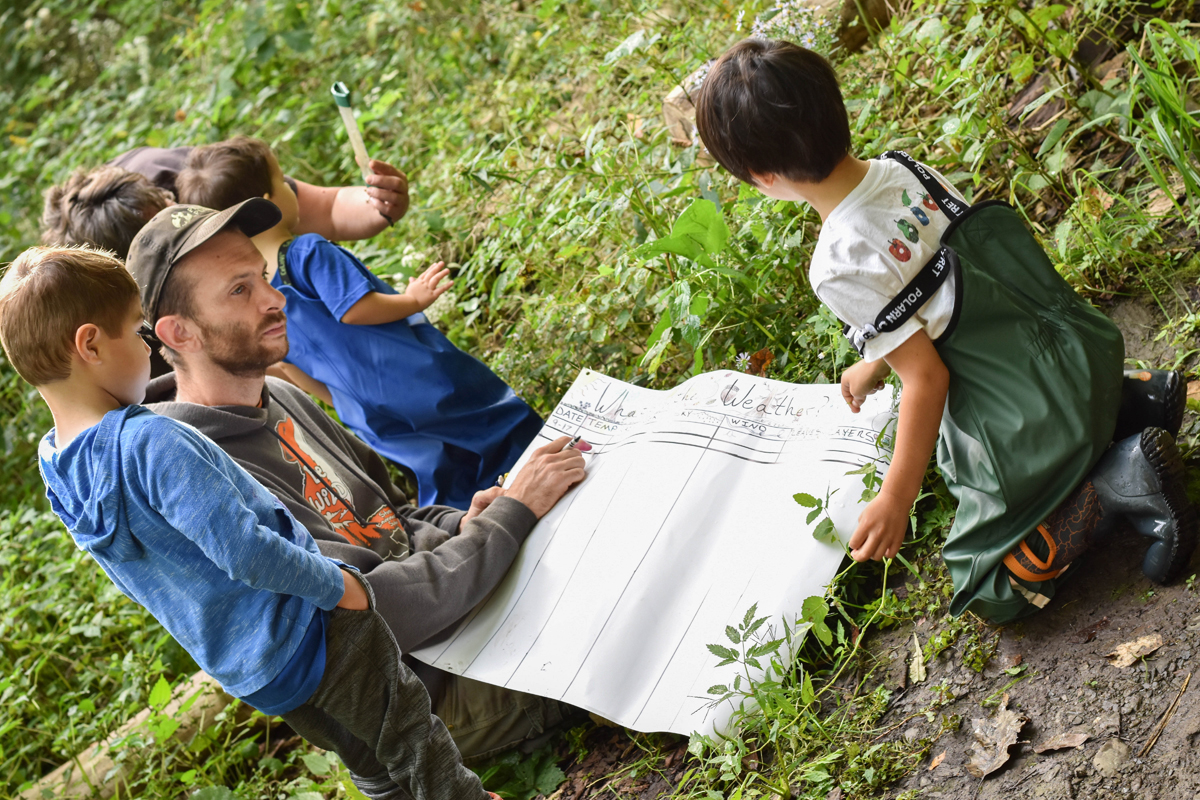

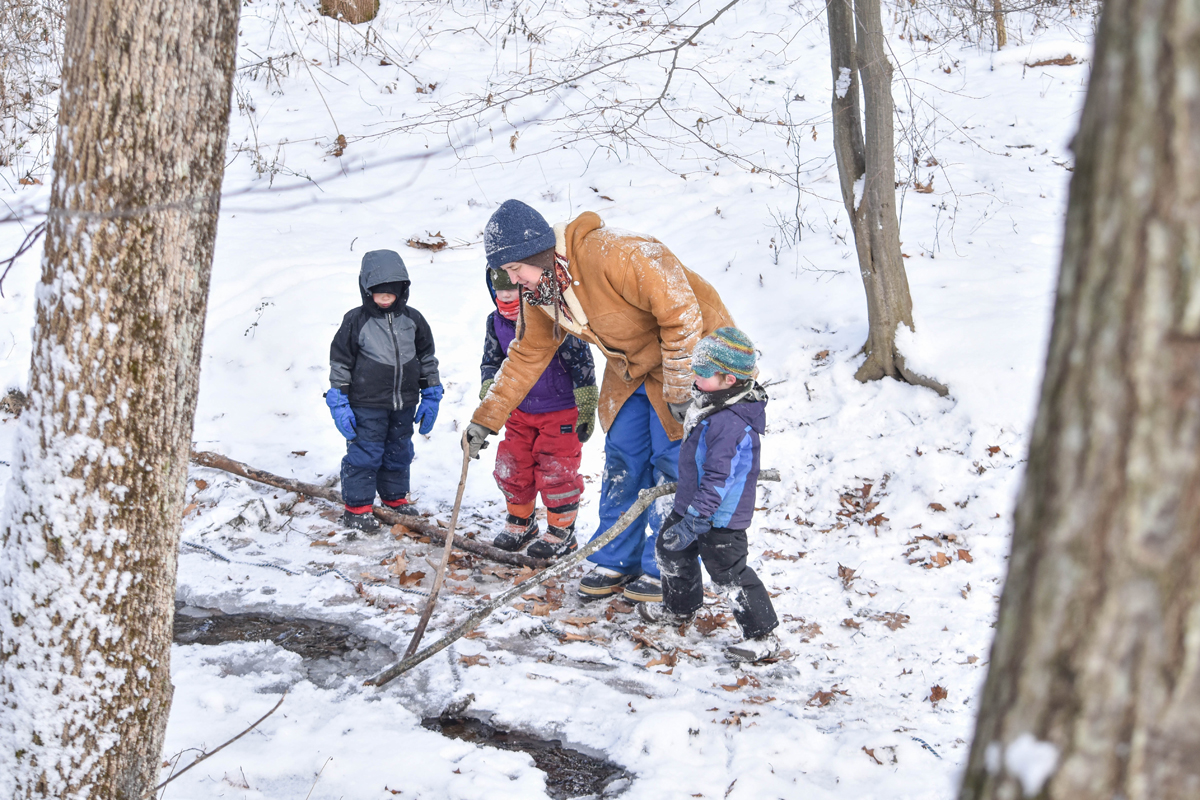
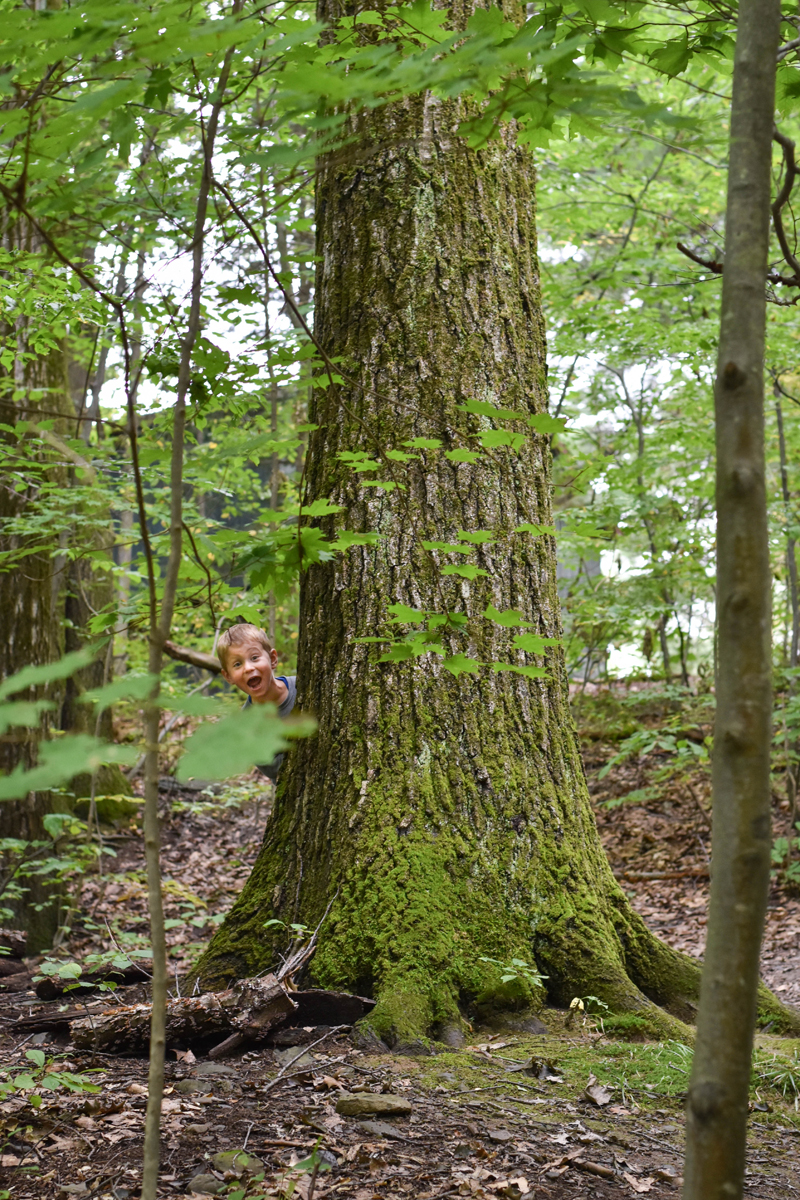
Rain, shine and even snow, we are outside exploring the woods together.
While we have an indoor facility we will use during hazardous conditions, we spend the vast majority of our time outside. In autumn, children enjoy collecting the acorns that fall from our beautiful red oak trees and jumping in colorful leaf piles. They experiment with dyeing wool with natural materials, like maple leaves, goldenrod and pokeberries.
In winter (learn more about winter on our FAQ page) the children can be found following animal tracks through the snow, a skill that teaches pattern recognition which is an important stepping stone for learning how to read. They build snow shelters, cook food and warm drinks over fires and even tap nearby trees for sap!
When the Earth starts to thaw and the honeysuckle buds begin to grow, the children love to play in the creek, turning over every stone looking for aquatic critters. They also spend time in our forest gardens learning about the plants that grow there, like the spring ephemeral Trillium, which is the namesake of our beloved basecamp.
In summer, Ithaca Forest Preschool becomes Growing Wild, a summer camp option for preschool-aged children. At Growing Wild, children learn about the animals that call the woods home, practice skills like camouflage, scouting and plant and tree identification.
Every day of the year, we sing songs and tell stories, learning and growing together.
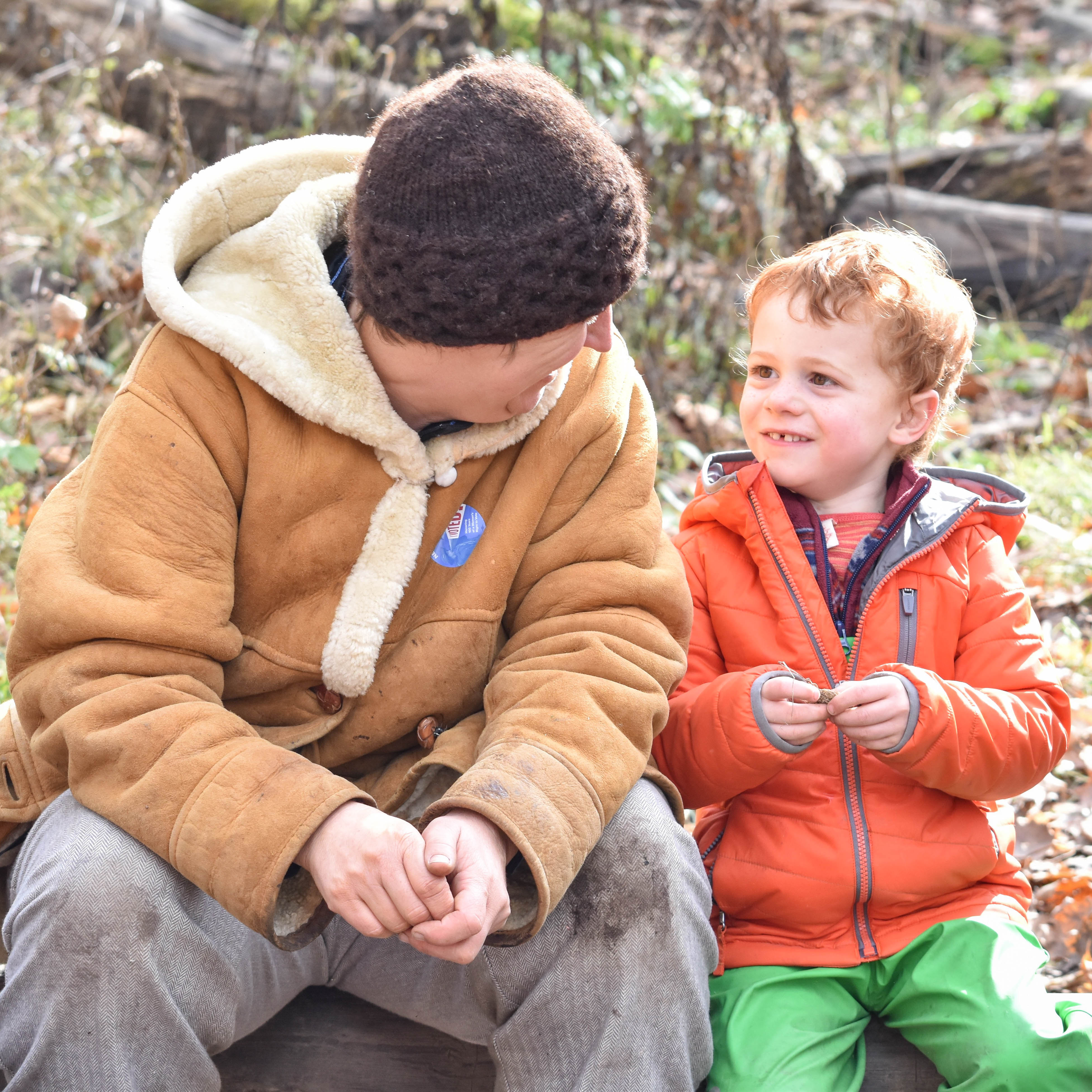
Why We Teach Young Children
When Richard Louv, author of Last Child in the Woods, spoke in Ithaca some years ago, he said he had concluded that unstructured time in nature is most important for kids’ development and nature-connectedness. “But,” he said, “I just don’t know how you do that in a program.” Well, we do. We provide plenty of time for kids to follow their own curiosity, their own agendas, and preserve for them a sense of timelessness while we as skilled mentors gently steer them where we need them to go, managing risks and weaving in learning, social skills development, and community building. Don’t we want our children to develop a naturalist intelligence early on in life? Researchers have studied the amazing abilities American preschoolers have to identify corporate logos. We prefer the patterns our pre-literate children know to be deer tracks, maple leaves, and robin song.
How We Teach Young Children
Nature is the teacher. We are mentors and facilitators, helping children:
- Connect with themselves
- Connect with nature
- Connect with others
- Connect with what has come before us
We work with children’s natural curiosity and passions. We gently motivate them to push their own comfort zones or “edges.” We observe the ability level of each child so as to provide appropriate challenges. We create a safe, community-oriented learning environment where each individual’s gifts are honored and children develop positive relationships with themselves and others. Children love it when adults play, learn, and wonder with them. As mentors we are part of the group too! We engage their imaginations, help focus their minds, and incorporate lots of sensory experiences to make learning stick.
Young children learn mainly through play and mimicry. Most of what we do in a day looks and feels like play. Our instructors are also constantly role modeling: how to dress for the weather, how to be safe around fire, being active learners, caring for the land, expressing gratitude, respecting other cultures, and engaging with each issue and activity creatively and consciously. Every day, we also use core routines that build these skills and habits: loving to learn, being happy, focusing attention, being physically active, being helpful, caretaking the Earth, being loving, and quieting the mind.
Our Core Routines
Giving Thanks – We often start or end each day with a gratitude circle, and pause at other times as well to acknowledge what we value and think outside ourselves.
Hazard Identification – What every beginner needs to know to stay safe outdoors. We also work to develop common sense– which is “the least common”.
Sensory Awareness Activities – Exercising our senses sharpens them, and for young
Games – Sometimes organized, often not. We run, jump, climb, sing, dance, and create, letting the abilities and interests of the children develop the games as we play them.
Animal Tracking – While we’re wandering, or anytime animal sign is present, we practice the fundamentals of pattern recognition that will later translate into reading skills. Tracking animals teaches to pay attention. We also like to catch small critters, teaching children how to do so respectfully and safely.
Animal Forms – Thinking and moving like specific animals, we exercise our bodies and imaginations, while developing a physical understanding of various animal habits and movements.
Navigating and Mapping – As we wander we practice “story-lining”, that is, telling a story using landmarks that will help us find our way back. We also practice other “lost-proofing” skills, introduce maps and mapping, and help children developing a sense of place.
Group Singing and Storytelling – Group time is a staple of our programs. Songs and stories are used to inspire, teach, set the mood, lighten the workload, practice listening skills, unify a group, and convey lessons about our environment and how to get along with others.
Children Telling Their Stories – For young children, talking about what they just did is a chance to practice language skills as well as reflect on and integrate new experiences into personal understanding. Following the lead of their storytelling instructors, our young students grow confident in speaking to the group.
Primitive Skills – We demonstrate and practice basics such as shelter building, fire making, gathering, cooking, basket- and tool-making. These are hands-on activities that involve experiential problem-solving and creativity. They also give kids a boost towards self-sufficiency and feeling “at home” in nature and the physical skills-based world.
Stalking, Hiding, and Camouflage – These activities provide teachable moments for ecological concepts. Learning the skills of “invisibility” also requires quieting the mind and controlling the body. We also use stalking and hiding games to practice
Celebration – Inspires learning and builds community. There is always something to celebrate! Our celebrations bring us full circle, back to gratitude.
A Typical Day at Ithaca Forest Preschool
from the blog
As children arrived this morning, they were invited to join one of several activities already in progress. When our group was complete, we gathered in our opening circle for drumming, singing, dancing, and a game of Animal Charades.
We each then found our backpack, the group gave a coyote howl, and we transitioned to walking quietly down the trail to our base camp by the creek. There, many forms of spontaneous play broke out. There were creek-walkers and worm-catchers, log-balancers, hiders, seekers, and “house” players. Children moved in and out of games and activities until snack time. During snack, we heard a cautionary tale about how ticks learned to kiss (bite).
Afterward, several more-focused activities were offered: soapstone carving, wild tea harvesting, firewood gathering, and creek play with clay painting. The group divided up according to interest, and if anyone failed to be engaged by what was going on an instructor sought to engage him or her. The whole group came back together for lunch around a fire, complete with wild (kid-harvested) tea.
When all lunches were packed up we gathered for our Closing Circle, singing songs of celebration and gratitude.
A final coyote howl signaled the end of another great day!


